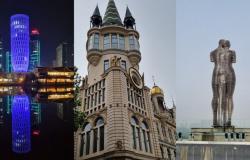Hot debate in Europe about the future of frozen Russian assets; MPs urge swift and direct action
The European Commission (EC) believes that what has been done so far is already a very important and innovative step. An agreement has been reached to transfer to Ukraine the profits from the frozen assets of the Russian central bank worth about 200 billion euros, which are kept in the Belgian financial clearing company EuroClear.
Also, it has already been announced that more than half of the Russian central bank’s assets are in cash and deposits, while the majority are in securities.
Although this money was supposed to be transferred to Ukraine by July, they are still working on how to channel these funds. The war-torn country plans to use this money to buy missing ammunition and weapons.
The High Representative of the European Union for Foreign Affairs, Jozeps Borrell, stated that Europe must do more and also think in the long term.
“We have to be braver. We have not been able to create a medium-term action plan. We first look at the latest Russian escalation against Ukraine and only then make our decisions. I have already said it several times and I want to repeat it in the last plenary session of this parliamentary term – this is a war on endurance. Putin will continue this war to conquer as much Ukrainian territory as possible. This means that it will not end quickly,” Borel said.
However, the European Central Bank and others warn that if any more drastic steps are taken, for example, there is talk of confiscating the assets themselves and putting them at the disposal of Ukraine, then this could create a dangerous legal precedent and encourage Russia to act.
The strongest objections come from those countries that still have business in Russia and fear that these funds they currently have in Russia, or companies and their assets, would be taken away. Thus, these countries would suffer, critics emphasize.
Deputies have previously stated that, in their opinion, more should be done. Member States are generally more cautious, and critics are likely to say that MPs will not be held accountable for such decisions – that countries will have to deal with it.
This time, the deputies elected from Latvia took an active part in the debate on Russia’s frozen funds.
“Profits from Russian assets alone will not be enough. The frozen assets of Russian oligarchs and the Russian state must be confiscated, from real estate, yachts to the frozen assets of the Russian central bank,” said European Parliament member Sandra Kalniete (“New Unity”). “I and many others do not understand the reservations that this would be a dangerous legal precedent, that the Kremlin’s counter-strike would follow, etc. Since the beginning of the war, the counter-strike has actually been happening. Russia does not hesitate to illegally expropriate and appropriate European companies and investments.”
European Parliament member Ivars Ijabs was also harsh in his statements (“For development/For!”).
“We must not be naive and imagine that we are dealing with some simple businessmen. These are people who owe their wealth to the Kremlin,” Iyab said.
“And these people have been acting as agents of the Kremlin’s influence for years, including spreading disinformation and all kinds of initiatives of the Russian world.”
Tags: Hot debate European Parliament future frozen Russian assets Article
-





